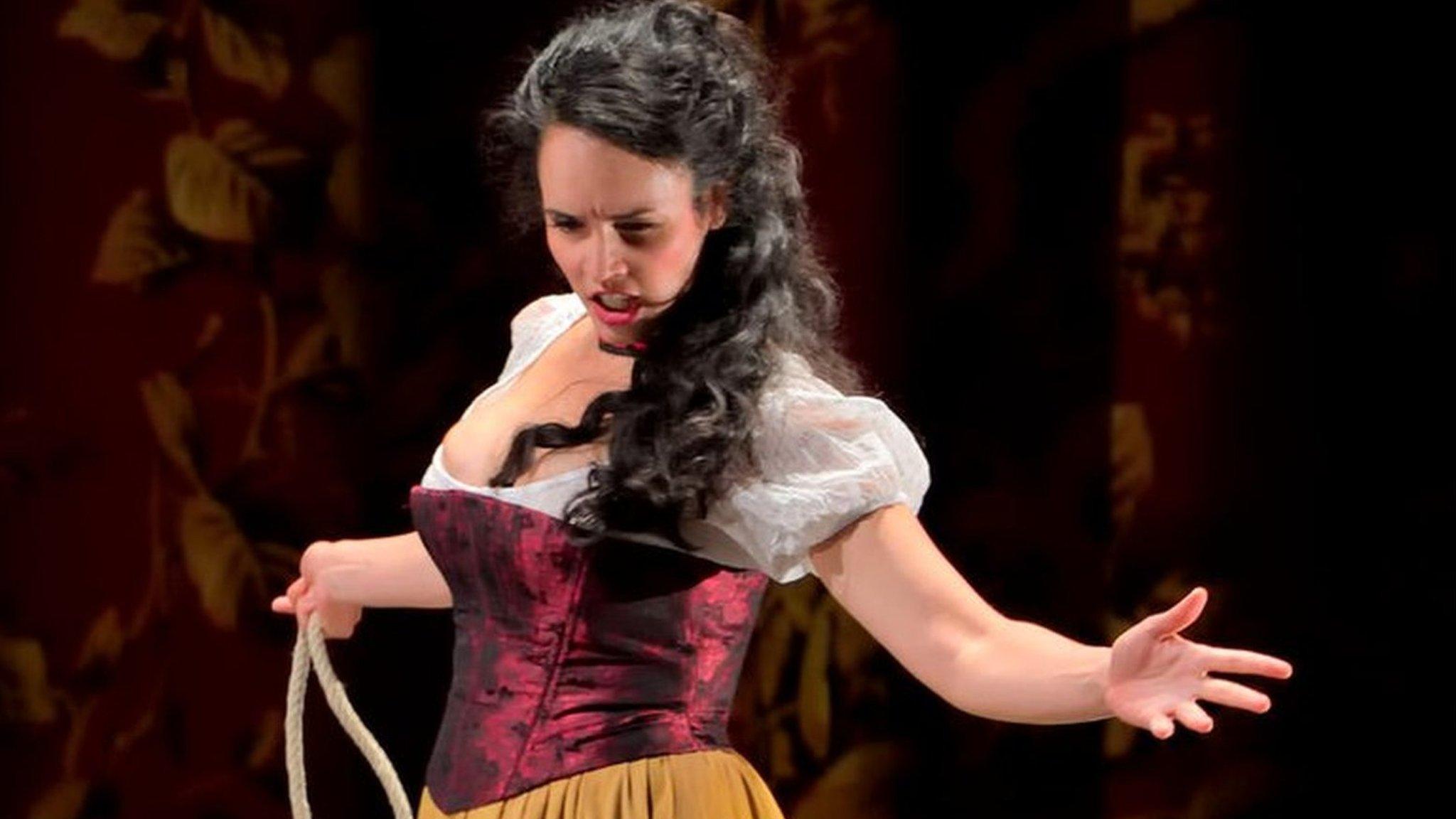The Scottish theatre phenomenon of A Play, A Pie and A Pint
- Published
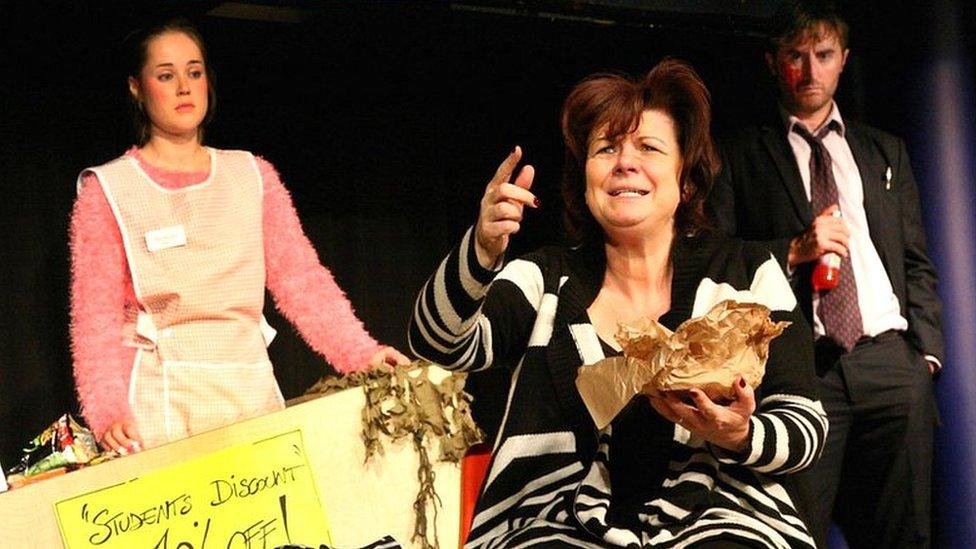
Elaine C Smith is just one of the stars who has graced the Oran Mor stage
A publican and a theatre director walked into a bar. What resulted wasn't a joke, but a theatrical phenomenon.
Established in 2004, A Play, A Pie and a Pint produces up to 40 plays a year as well as two pantomimes in the Oran Mor venue in Glasgow.
It has given a platform to established names like Robbie Coltrane, Karen Dunbar and Mel Giedroyc, and encouraged writers like John Mortimer, Denise Mina and Peter McDougall to try their hand at stage plays.
But it has also helped new writers get a foothold in the industry, like Liam Moffat, whose play Jack opens the new season this week.
For Juliet Cadzow it is a bitter sweet moment. Her husband David MacLennan was the theatre director who came up with the idea.
He died in 2014 after being diagnosed with motor neurone disease.
"David met Colin Beattie in the street and he asked him to come and look at the building he was developing," she says.
"This is what he wrote at the time: 'The actor Ralph Richardson once described acting as the art of keeping the audience from coughing.
"'And Alfred Hitchcock said the length of a film should be directly related to the endurance of the human bladder. That's why Colin Beattie and I started a play a pie and a pint'."
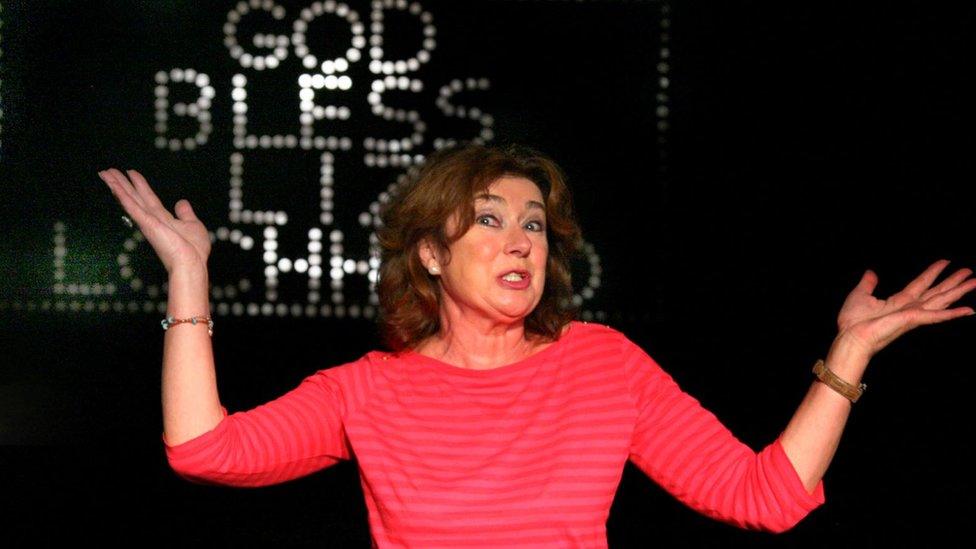
Juliet Cadzow's husband David MacLennan was the theatre director behind the idea
The first show was a play called Hieroglyphics by Anne Donovan, author of Buddha Da. It was her first stage play.
For the cast, which included Linda Duncan McLaughlin, it was also a new experience.
"It was upstairs in the main auditorium where the artist Alasdair Gray was working on his mural," she says.
"The acoustics were weird because it was designed as a church so there was a slight acoustic delay. It was so big and there was no black out so we were performing in broad daylight."
Lunchtime theatre was already popular across Europe but the Scottish offer of a pie made it different, and brought its own challenges.
"It was waiter service when it first started and everyone came and sat at long trestle tables and they were served their pie and It took time when it was busy," Linda says.
"They wouldn't have stopped serving before the play went up. So the waiters were trying to be quiet and and the audience were trying to be quiet but they were still eating."
But the concept quickly took off.
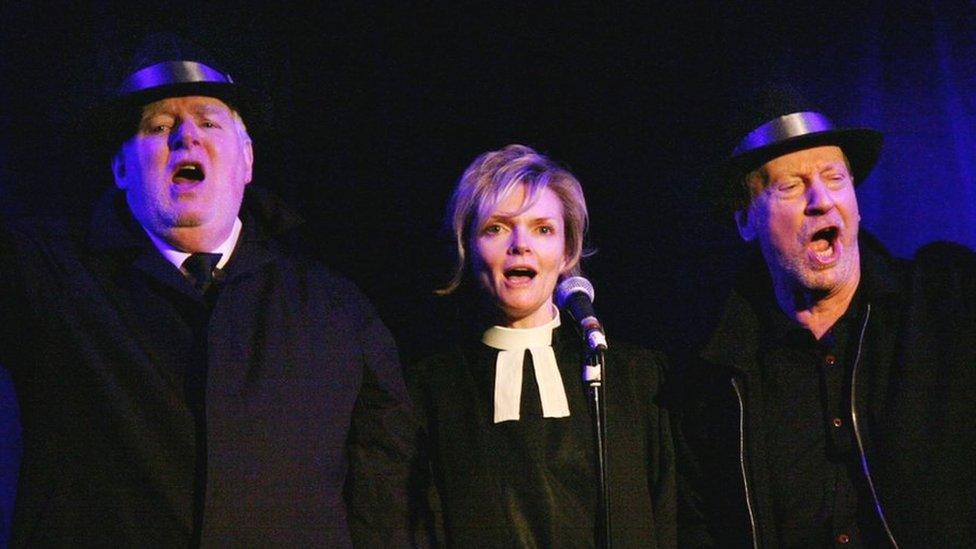
Kenny Ireland, Sharon Small and Bill Paterson in "Astonishing Archie"
"I think the fact that it was weekly helped," says Juliet.
"If you didn't like the play that was on that week, there would be a new one next week. And the audience were quite vociferous. They would say to David 'I didn't like that one' but they'd still come back the next week."
Those involved in the shows also liked the challenge of creating a 50-minute show with limited resources and rehearsals.
Linda Duncan McLaughlin has written plays, as well as performing in them.
She says: "You've got to get what basically is a full play into a fifty minute timeframe.
"You only have three actors so if you wanted to write six parts, you're going to have to be really good at writing doubling up parts and you have to make sure the actors can cope with that.
"It is limited but it's a great discipline for a writer. And it really focuses your mind."
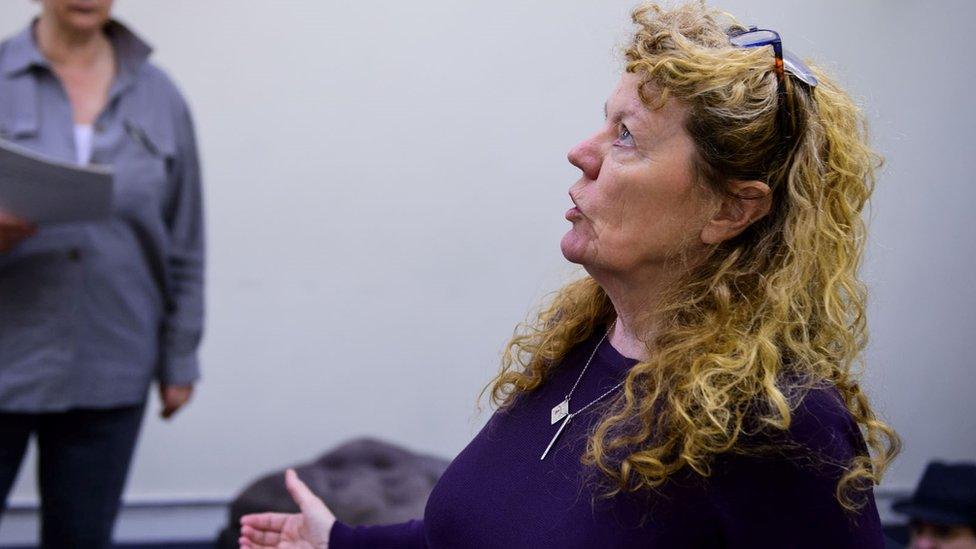
Linda Duncan McLaughlin has written plays and performed in them
For some performers, it's a chance to return to their roots, although Robbie Coltrane admitted his week long run in Peter MacDougall's play My Father's Old Suit in 2005 was a daunting one.
"The idea of 500 Glaswegians drinking and having their dinner?", he recalled in a 2010 documentary.
"It's like one of those Frank Sinatra concerts where all you can hear is the knives and forks clattering."
While Icelandic writer Jon Atli Jonassan found the 2009 run of his play The Deep helped him into filmmaking.
"Being a fairly established playwright in Iceland and having no difficulty in getting something staged, this was tricky," he says.
"No one wanted to make it but after the production here, we got interest from filmmakers. It was the most expensive film ever made in Iceland and was shortlisted for Best Foreign Film at the Oscars."
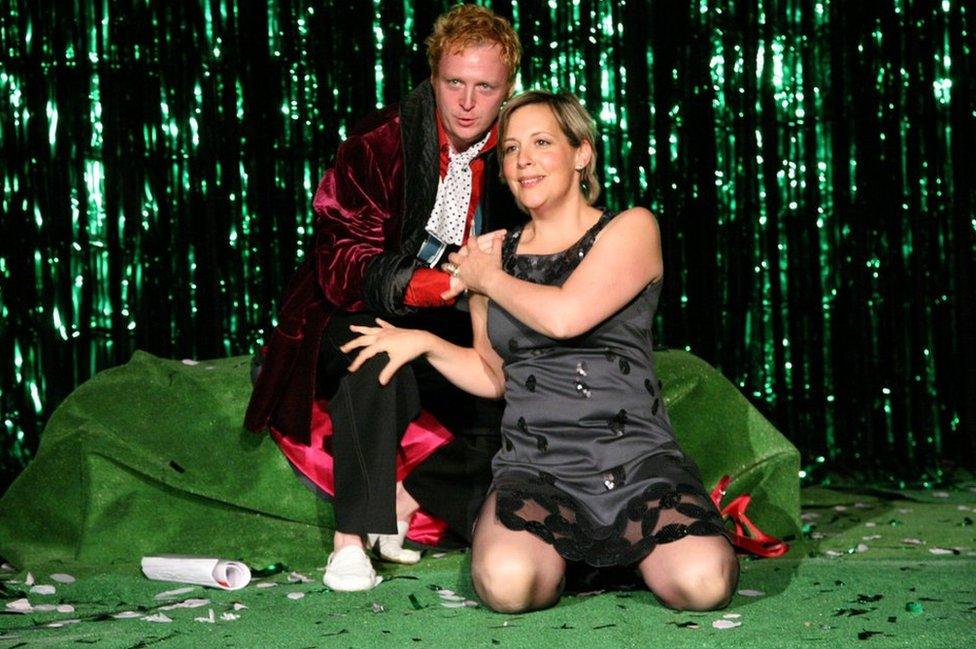
Mel Giedroyc appeared in A Midsummer Night's Dream
International work has often figured, including an Arab Spring season and a Chinese writing season. Plays have also toured to Nicaragua, Pamplona, Melbourne and Adelaide and a company in Philadelphia set up their own version.
"If you'd asked us that first week, I'm not sure we would have been confident that we'd still be going twenty years hence," says Linda, who is co-chair of the Scottish Society of Playwrights.
"It does offer an opportunity for new work to be on every week of the year for forty eight weeks of the year, which no other organisation can offer. So it really does have a strong, vital part to play in Scottish theatre culture and long may it continue."
Juliet says she thinks David would be delighted with the legacy he's left.
"I think what he created is an extraordinary legacy and I think he would probably be delighted that it's still on the go. He'd had laughed and said, really? I didn't think that was going to last."
- Published14 November 2023
